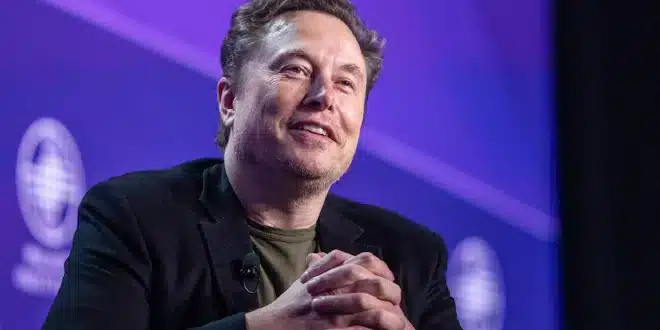Tesla shareholders are set to decide on an all-stock compensation package for CEO Elon Musk, which was previously dismissed by a Delaware judge. Approving this package would likely ensure Musk’s continued leadership at Tesla, where he has driven the company to the forefront of electric vehicles and is now focusing on AI and robotics, including autonomous vehicles, which he claims represent Tesla’s future.
Should shareholders reject the $44.9 billion compensation package on Thursday, Musk may take his AI research to another one of his companies or potentially leave Tesla.
On Wednesday, Musk indicated on his social media platform X that early voting results suggest shareholders support his compensation package and other initiatives, such as re-incorporating Tesla in Texas, by significant margins.
Musk has previously faced issues with his statements about Tesla on X. On Thursday, the company filed Musk’s comments on the preliminary voting results with the U.S. Securities and Exchange Commission. Tesla shares, which have dropped 30% this year, rose sharply before the market opened.
Even if the shareholders approve Musk’s compensation package at Tesla’s annual meeting, there remains some uncertainty. Musk has hinted on X that he might develop AI elsewhere if he doesn’t secure a 25% stake in Tesla (he currently owns about 13%). Musk’s AI venture, xAI, recently received $6 billion in funding.
Dan Ives, an analyst at Wedbush, expects the package to be overwhelmingly reapproved, which would resolve significant uncertainty surrounding Musk. He wrote that removing this issue would be crucial for Tesla’s stock.
Tesla’s shares have struggled this year, with the company warning of “notably lower” sales growth in 2024. According to Musk, early indications show that shareholders also favor moving Tesla’s legal base to Texas, away from Delaware.
This move aims to evade Delaware court oversight, particularly from Chancellor Kathaleen St. Jude McCormick, who invalidated Musk’s pay package. In January, the judge ruled that Musk’s influence over Tesla’s board made him ineligible for the nearly $56 billion package.
Several institutional investors have opposed the large payout, citing declining vehicle sales, price cuts, and falling stock prices. However, the top five institutional shareholders—Vanguard, BlackRock, State Street, Geode Capital, and Capital Research—have either remained silent or declined to comment on their votes, controlling about 17% of the votes.
University of Michigan business and law professor Erik Gordon believes individual shareholders, who own over half of Tesla’s shares, are likely to vote in favor of the package.
One institutional investor opposing the package is California’s State Teachers Retirement System, which criticized the magnitude of the pay and its dilutive effect on shareholders, as well as the lack of focus on profitability.
In May, shareholder advisory firms ISS and Glass Lewis recommended voting against the package. Despite this, Tesla and Musk have aggressively lobbied for its approval through X posts, television appearances, and proxy filings with the SEC.
On X, Tesla urged shareholders to vote for ratification of the 2018 CEO Performance Award. Tesla Chairwoman Robyn Denholm highlighted that the package was initially approved by 73% of the vote six years ago. She argued that it was unfair for Elon Musk to remain unpaid for his contributions that significantly increased shareholder value.
Tesla stated that the 2018 award incentivized Musk to create over $735 billion in value for shareholders since its approval.
If Tesla moves its legal base to Texas before finalizing the vote on Musk’s compensation, and completes the necessary paperwork in Austin, the Delaware court ruling could become irrelevant. The reapproval of the pay package as a Texas corporation might fall under Texas court jurisdiction.
Anticipating a swift move by Tesla, lawyers for shareholder Richard Tornetta, who filed the lawsuit against Musk’s pay deal, sought an order in Delaware to prevent Tesla from relocating the case. Tesla responded that there was no reason for such concerns as they would not seek a move. The judge, Chancellor McCormick, stated she trusts Tesla’s assurances not to relocate the case.
Columbia University law professor Eric Talley suggested that the lawyers are unlikely to attempt moving the case, as their expertise lies in Delaware courts. However, he acknowledged that the unpredictable Musk could change lawyers.
Talley, a Tesla shareholder planning to vote against Musk’s pay, expects Tesla to appeal McCormick’s ruling to the Delaware Supreme Court.


